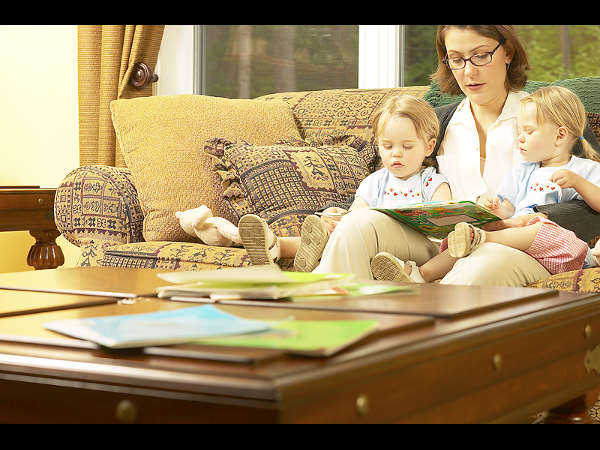
Human beings are born with the innate ability to speak and we have a gift for figuring out the language used in our environment. Almost all children learn their rule of language at an early age with or without formal instruction.
Most of the children acquire all skills needed for oral language naturally, by the time they are 5 years old. In order to acquire nearly accurate and effective grammar and vocabulary skills, a child must first hear the language consistently.
Environment is a significant factor, as children learn the dialect that people speak around them.
Parents, caregivers and teachers play an important role in developing a child's oral language skills. They impact directly on speed and efficiency of oral language skill development in children.
What can parents do to nurture early oral language development?
Parents play an important role in nurturing oral language development in their children. Parents have to spend creative and focused time with them.
The following are simple activities that are valuable and can be done, even with lesser quality time with children:
Talk to your child:
Remember talking to your child whenever you are together. Children learn very early about the rules of conversation. Treat them as conversationalists.
Read to your child:
Read or recite to your child aloud. This brings a positive association in a child with reading.
Make reading activity an interactive experience. You can try:
- Discussing about the pictures in the book.
- Let your child make up his or her own version of what will happen next in a story.
- Allow your child to finish telling the story or rhyme, if it is familiar.
- Give your child the opportunity to correct you by purposely misreading items and words.
- Act out the story .
- Reinforce sequential reading.
Encourage interaction among children:
Another important factor of language development is peer learning especially among mixed-age groups. Create activities that involve wide range of materials to promote talk. Balance activities between individual performances and those that require discussion.
Respond appropriately to your child:
Remember that as a parent or caregiver, you can inculcate good habits of speech in your child. Listen to what your child is saying and respond appropriately with sincere thoughts to encourage more dialogue. Help your children to recognise the relationship between speech and writing. Encourage storytelling both orally and in written form.
Children with strong oral language skills learn to read and write with greater ease and tend to excel in school better than their peers with lesser language skills.
Children learn much from each other, but parents are the main teachers of language development in the child. Continue to encourage interaction as children come to understand written language skills. Every area of the curriculum is enhanced through language, so that classrooms full of active learners are hardly ever silent.



 Click it and Unblock the Notifications
Click it and Unblock the Notifications

























